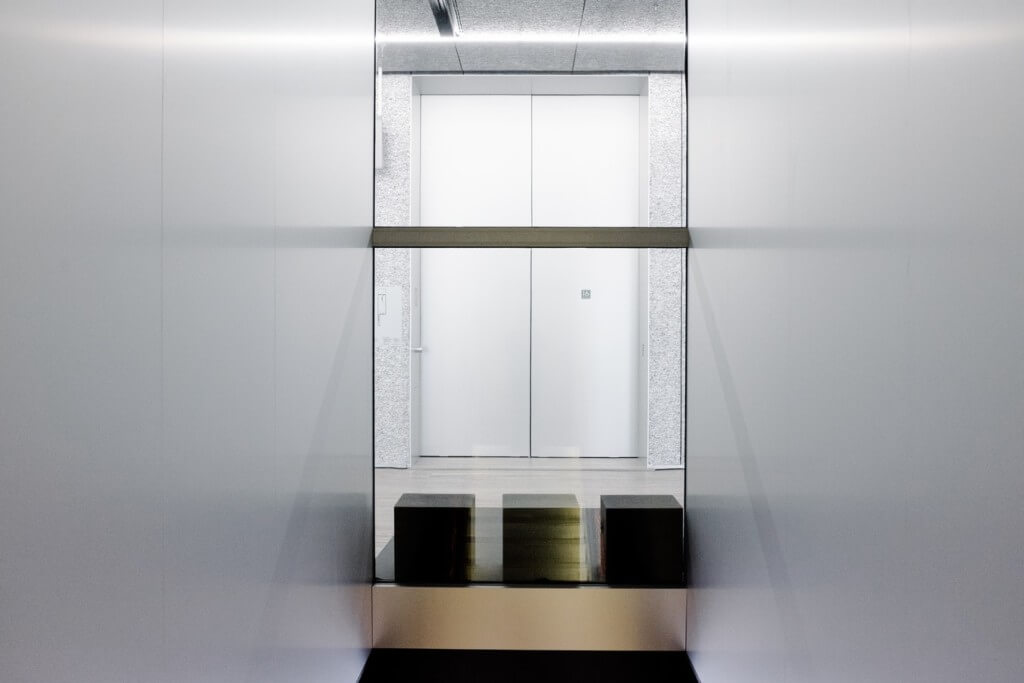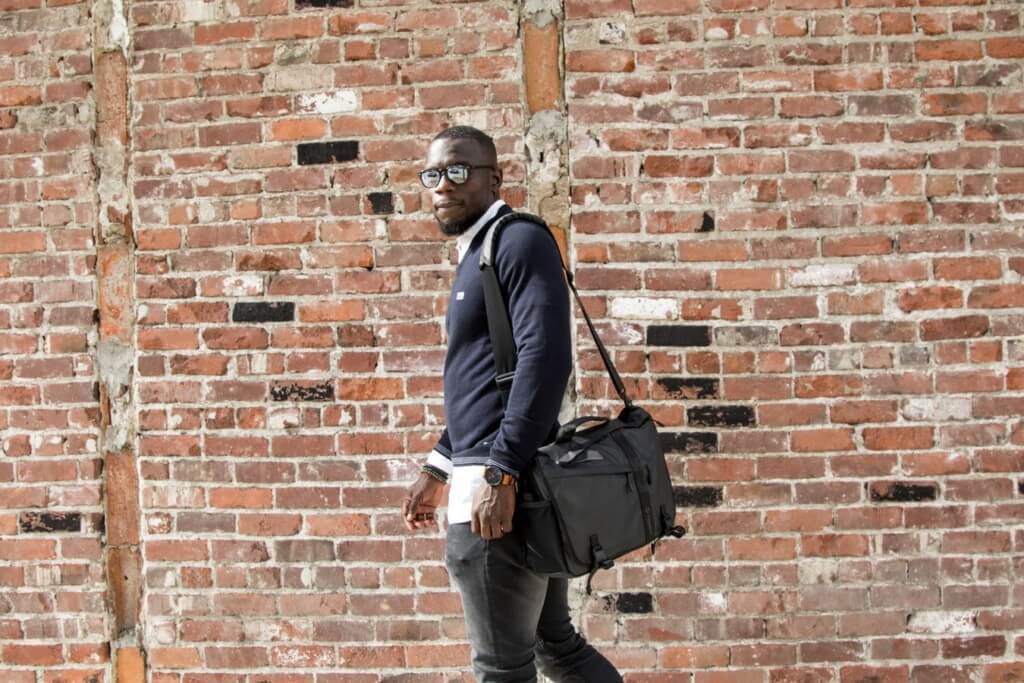Aside from cramming for a test, preparing for an interview is the only thing that kills a college student’s good mood. Interviews are dreadful and require you to stand out amongst tons of other college students working and grinding for the same common goal: Getting a job. Let’s get real, that’s why we all go to college in the first place.
Check out these creative tips to rock every interview you’ll come across in college.
The Traditional Interview

College students typically experience the traditional interview. We interview for student government, club positions, on-campus jobs and even sit in front of another person talking about ourselves during Greek rush.
- Print out multiple copies of your resume on good paper and buy a couple of folders or a nice resume folio for them. You might encounter multiple interviewers, so coming prepared helps make a great impression.
- Be positive and confident in your abilities. “It’s important to go into an interview with a positive attitude and make sure to put your best foot forward so that you come out of there feeling like you gave it your all,” Florida State University senior Kat Aldereguia said.
- “The interview is where you present yourself at your best,” said Nadene Reynolds, the Associate Director for Career and Professional Development at the Career Resource Center at the University of Florida. This includes your clothes. When it comes to attire, business casual is usually the safest route. However, some companies share different customs, so look up how they run their business. For example, you should dress to impress for an interview at a fashion magazine.
- According to Reynolds, you should remember two things for any interview. Answer this question: Why do you want the job? Having a strong sense of self helps you convey this answer to your employer as well as establish confidence. Also, showing off your enthusiasm in an interview helps your potential employer see that you’re excited about the job.
- “I always worried about trying too hard to sound articulate and impressive but ending up using words incorrectly,” said George Washington University sophomore Jennifer Hudak. “It came down to me deciding that if I didn’t use the word ‘axiomatic’ in my every day language, neither did my potential employer.” To prevent stuttering and feeling nervous, answer questions honestly.
The Group Interview

Yup, this one’s intimidating. “I’ve seen the most anxiety from students with the group interview,” Reynolds said. “Students are sitting not only in front of their employers but also their competitors, which can be uncomfortable.”
- If you’re in a creative field, you have the freedom to go all out with your resume. Even if you’re not, adding a different font or layout will help employers differentiate your resume from everyone else’s. Employers usually see your resume first, so this will definitely help you stand out to them.
- Don’t spew out random answers just to get a word in before everyone else. Instead, calmly think of something unique to say that will resonate with your potential employers.
- Always be courteous to the other applicants. This isn’t a life or death scramble to grab the last bottle of water in the desert. Saying something memorable and unique but waiting your turn to speak is definitely worth it. Bonus: That’ll show the interviewer that you have good teamwork and all around good people skills.
- For group interviews that require solving a puzzle as a team in front of your interviewers, make sure to listen to the instructions carefully and help lead your team with confidence. There’s a difference between an attention hog and someone who contributes as a vital part of a team.
- Dress well but don’t forget to add a little something that’ll help set you apart. For instance, you could try a colored tie or a bold accessory. A pop of color shows you aren’t someone who blends in and displays a little bit of your personality.
- It’s easy to get overwhelmed when sitting aside from people trying to get the same position as you so confidence is a necessity. “I realized that the only way there’s no guarantee that I’ll get a position is if I don’t put myself out there and try,” University of Louisiana at Lafayette senior Laura Karina Jaen said.
The Phone Interview

What college student hasn’t experienced a phone interview once or twice before? The best part is that it does come with some perks: You can interview anywhere (i.e. your couch) and wear something that makes you feel comfortable. However, distance from a potential employer doesn’t make this type of interview any less important.
- Double check that you’re answering the phone call in a reliable area. What if your service cuts off your interviewer mid-sentence? Having to continuously call back wastes not only your time but theirs as well—that would not be ideal.
- Since your employer can’t see you through the phone, you can’t use body language to show your enthusiasm. Keep this in mind when choosing your words to make sure that your employer can tell that you’re passionate, even if it’s through a phone.
- Even with a phone interview, students should practice answering questions. “Take the time to articulate and have your answers prepared beforehand,” Reynolds said. “It’s distracting if your interviewer can hear you flipping through papers searching for something to say.”
- Reynolds also the tip to dress well, even if your interviewer can’t see you. Dressing well helps you feel good and confident, which is vital for a successful interview.
- What you say is just as important as how you say it. “Although it’s important to keep the conversation professional, I try to make the interviewer laugh or find a way to show more of who I am in the interview to stand out,” FSU sophomore Samantha Bravo said.
The Skype Interview

Skype interviews are very similar yet different to the traditional interview. Even though you see your interviewer and they can see your body language, it’s not physically face-to-face. Technology plays a huge role in this type of interview, which means many things can go wrong.
- Dress professionally from head to toe. You never know when you’ll need to get up from your seat. If your interviewer sees your misleading choice of attire, it may come off as disrespectful, and that’s not an impression you want to make.
- Double-check your Wi-Fi connection. Like in the phone interview, it would not be ideal to get cut off mid-sentence. It’ll make you look unprepared.
- Pick your location wisely. “Make sure your environment is prepared accordingly,” Reynolds said. “Try to find a quiet space where you won’t be distracted and a plain background with no reflective surfaces.”
- Have everything you need right in front of you – your resume, sample interview answers, a glass of water, etc. Getting up constantly from your seat wastes not only your time and your potential employer’s, but it also shows your lack of preparation.
- See if your school has a career resource center that offers free mock interviews for students. At UF, the CRC offers in person and online options. For example, Reynolds notes that in their virtual mock interviews, students can record themselves and their answers. Remember, practice makes perfect.
Still worried? These awesome Amazon buys will help you look your best and stand out in any interview.
1. University Cufflinks

A pair of university cufflinks shows off pride for your school as well as attention to detail. These accessories are memorable, and they make a great conversation starter.
Price: $20.852. Blazer
This blazer will definitely help you stay in-style while showing off your professional and well put-together side.
3. Padfolio

A padfolio is a great way to hold business cards, a couple copies of your resume, pens and other interview necessities without the hassle of rummaging through a bag or briefcase.
Price: $15.954. File Folders
Buying file folders is my personal interview success tip. The secret is buying enough with a pattern that best fits your personality and passing them to every interview in the room with a copy of your resume inside. It shows who you are and stands out amongst the vanilla colored files they probably have on their desk.
5. Red Necktie

A pop of color goes a long way and red will draw your potential employer’s eyes to you in during a group interview immediately. After interviewing many candidates, you and your great answers will be associated with your red tie, whether or not they’re able to remember exactly what you look like.
Price: $12.99How to Master an Open Interview #LikeABoss
Written by Lily Schwartz
Traditional interviews? Easy. Phone and Skype interviews? Done and done. Group interviews? Why not. But a different type of interview will pop up more and more commonly these days: the “open interview.” This just means that instead of the usual process of applications and interviews, a company will announce that they’re going to hold interviews during a set time on a set day and anyone interested can come by when they want. With just a copy of your resume in your hand, you have to set yourself apart from all of the other blazer-wearing students in the room. It can feel super intimidating at first, but don’t worry. Here’s how to master an open interview, like a boss.
1. Use What You Know

If you’ve never attended a hiring event or an open interview before, it can feel nerve-wracking to prepare for something that feels so unconventional. Jason Bauer-Clapp, Associate Director of Internships & Programs at the Lazarus Center for Career Development at Smith College, said that the preparation for an open interview doesn’t need to differ too much from the preparation for a traditional interview. “Take stock of your skills and knowledge and come up with examples of how, where, and when you learned or applied those attributes,” said Bauer-Clapp. Think back on older jobs—what moments do you feel proud of? What moments do you know you would handle differently now? Draw from these experiences and use them to help you find success.
2. Prepare Your Elevator Pitch

The one-on-one time you’ll have with recruiters makes the difference between an open interview and a traditional interview. More often than not, interviews during a set block of time will feel quick and rushed. Because of this, make sure you rehearse your “elevator pitch” and prepare how you plan on introducing yourself before the interview. This way, when a potential employer asks the inevitable “Tell me a little about yourself?” you’ll feel ready with a succinct, confident answer. Even if your interviewer has one eye on the clock, don’t stress. With a simple, rehearsed elevator pitch, you can give an accurate, professional portrayal of yourself without really having to think about it.
3. Read the Room

The words “open interview” often make first-time job seekers wonder about how formal to act. Some hiring events can feel a little unstructured and therefore less formal than your average interview, but does that mean that the conversation is going to feel more casual? Do all the same rules apply when it comes to conversational etiquette? “Be prepared to listen and learn as you go,” said Bauer-Clapp. Remain professional and act accordingly like you usually would. Like all interviews, try and mirror your interviewer’s actions and level of professionalism. This way, you won’t have to worry about overstepping or giving the wrong impression. Set yourself up for a stellar interview rather than a Michael Scott blunder.
4. Don’t Stress About the Dress

While it is always important to dress to impress, keep in mind that an open interview may include a solid amount of waiting. Don’t overdress in something that might feel uncomfortable since you could find yourself looking at a lot of waiting around before you actually get inside. Business casual attire should work fine for most hiring events, but adjust the formality of your outfit depending on the type of organization or company holding the interviews. It’s also never a bad idea to snap a pic of your outfit and send it to a friend for a second opinion—just make sure that the friend is someone who is fashion-trustworthy (not someone who would send you into an interview dressed for the wrong century).
5. The Last Steps

Before you leave, make sure you know the company’s next steps in their hiring process. If they haven’t made it clear to you, don’t hesitate to ask. This way you’ll hopefully leave with an idea of when they’ll contact you and whether or not they will hold another round of interviews. “Finally,” said Bauer-Clapp, “Ask for your interviewer’s business card before leaving.” Making sure you have a way to contact your interviewers makes it easy to check-in for info about your potential job status. “Following up with a ‘thank you for the interview’ email is still appropriate,” said Robin Mount, Director of Career, Research and International Opportunities Offices of Career Services at Harvard University. This email, simply thanking your interviewer for their time and consideration, can be effective, no matter how small a gesture it seems to you.
**Updated on August 14, 2018 to include tips for open interviews by Lily Schwartz





















